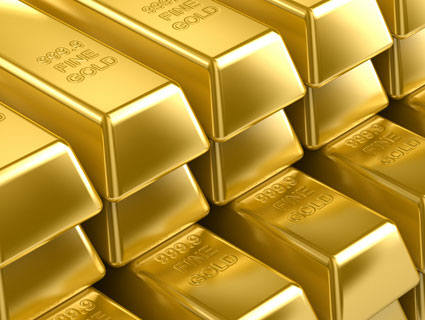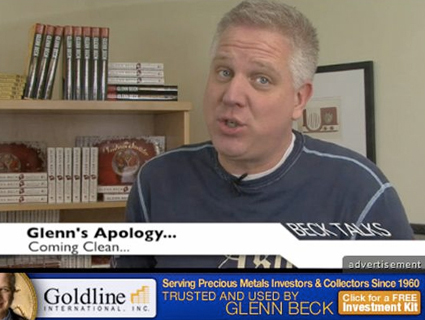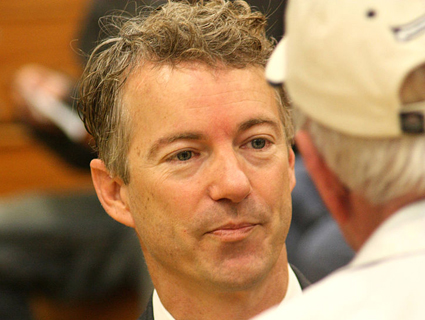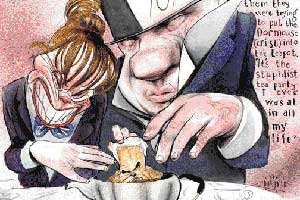
Tomislav Forgo/<a href="http://www.shutterstock.com/cat.mhtml?lang=en&search_source=search_form&version=llv1&anyorall=all&safesearch=1&searchterm=gold&search_group=&orient=&search_cat=&searchtermx=&photographer_name=&people_gender=&people_age=&people_ethnicity=&people_number=&commercial_ok=&color=&show_color_wheel=1#id=6953350&src=2dbeafd1b13d6603725c602be554a220-1-46">ShutterStock</a>
During Monday night’s GOP presidential primary debate on NBC, Rep. Ron Paul (R-Tex.), a prominent advocate of pegging the value of the US dollar to the price of gold, praised Newt Gingrich, the former speaker of the House, for promising to appoint a federal gold commission to “look at the whole concept of how do we get back to hard money.” Since there was little actual discussion of the gold standard as policy (President Richard Nixon took the US off gold in August 1971), it’s worth examining what top economists think about it. In short, they don’t think it’s a great idea. The University of Chicago’s business school recently asked several dozen top economists whether they agreed with the following statement:
If the US replaced its discretionary monetary policy regime with a gold standard, defining a “dollar” as a specific number of ounces of gold, the price-stability and employment outcomes would be better for the average American.
Every single one of the economists surveyed disagreed with the statement; i.e., they unanimously embraced the anti-gold standard view, differing only on the degree to which they disagreed with it.
Gold standard advocates will point out that many top economists missed things like the housing bubble and the financial crisis, and that establishment support for a view doesn’t necessarily mean it’s correct. That’s true, but context is important, too.















